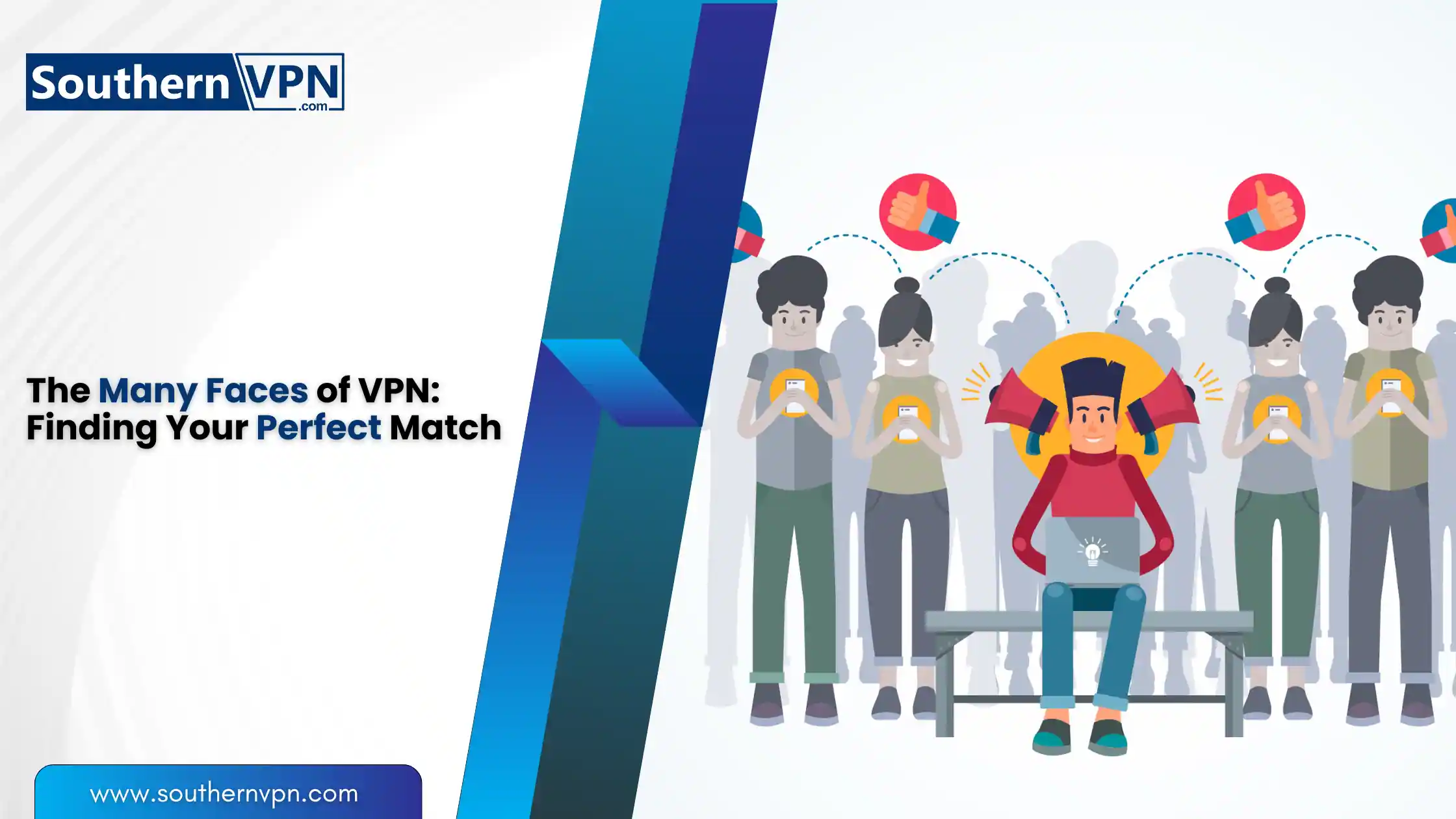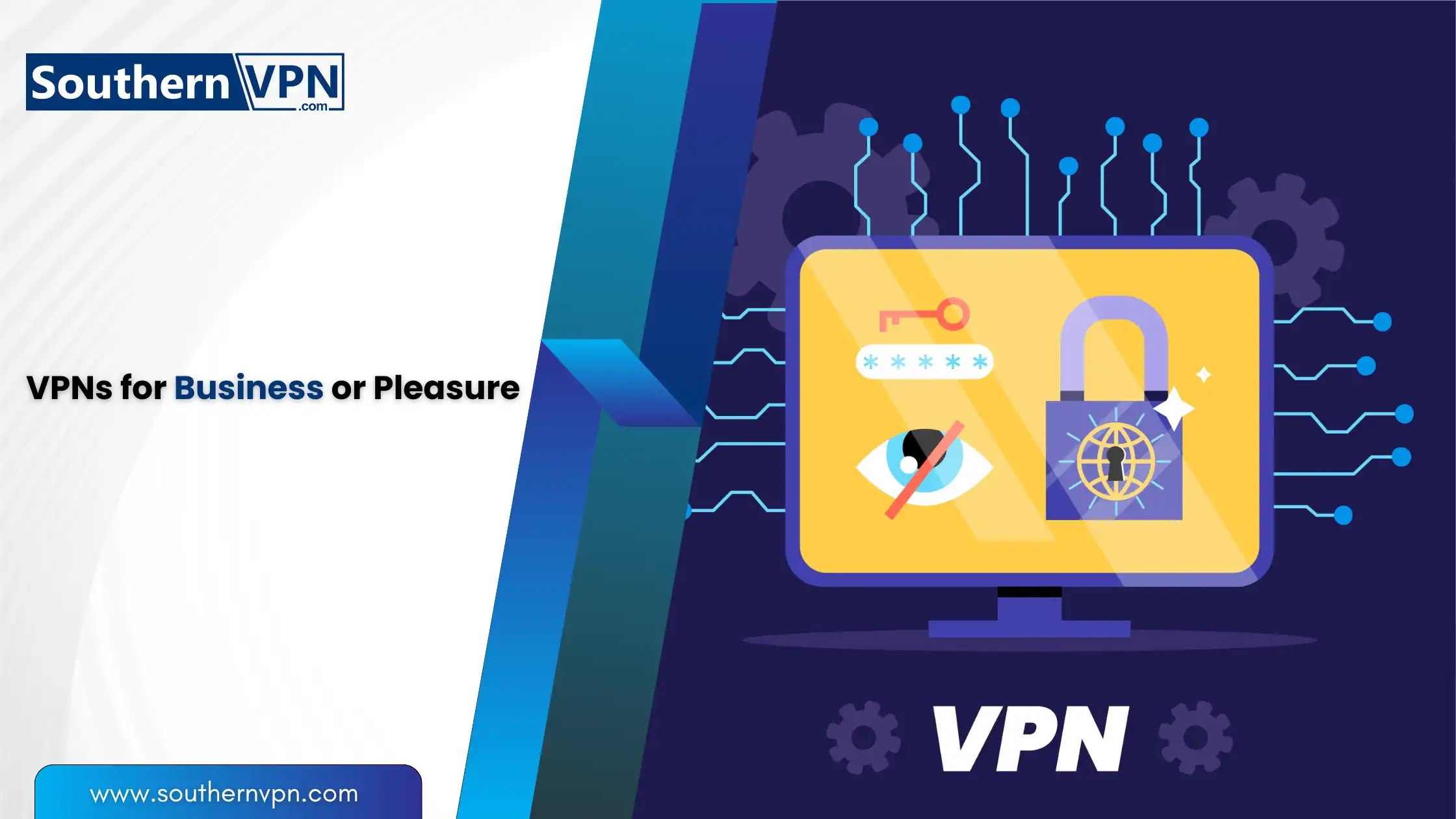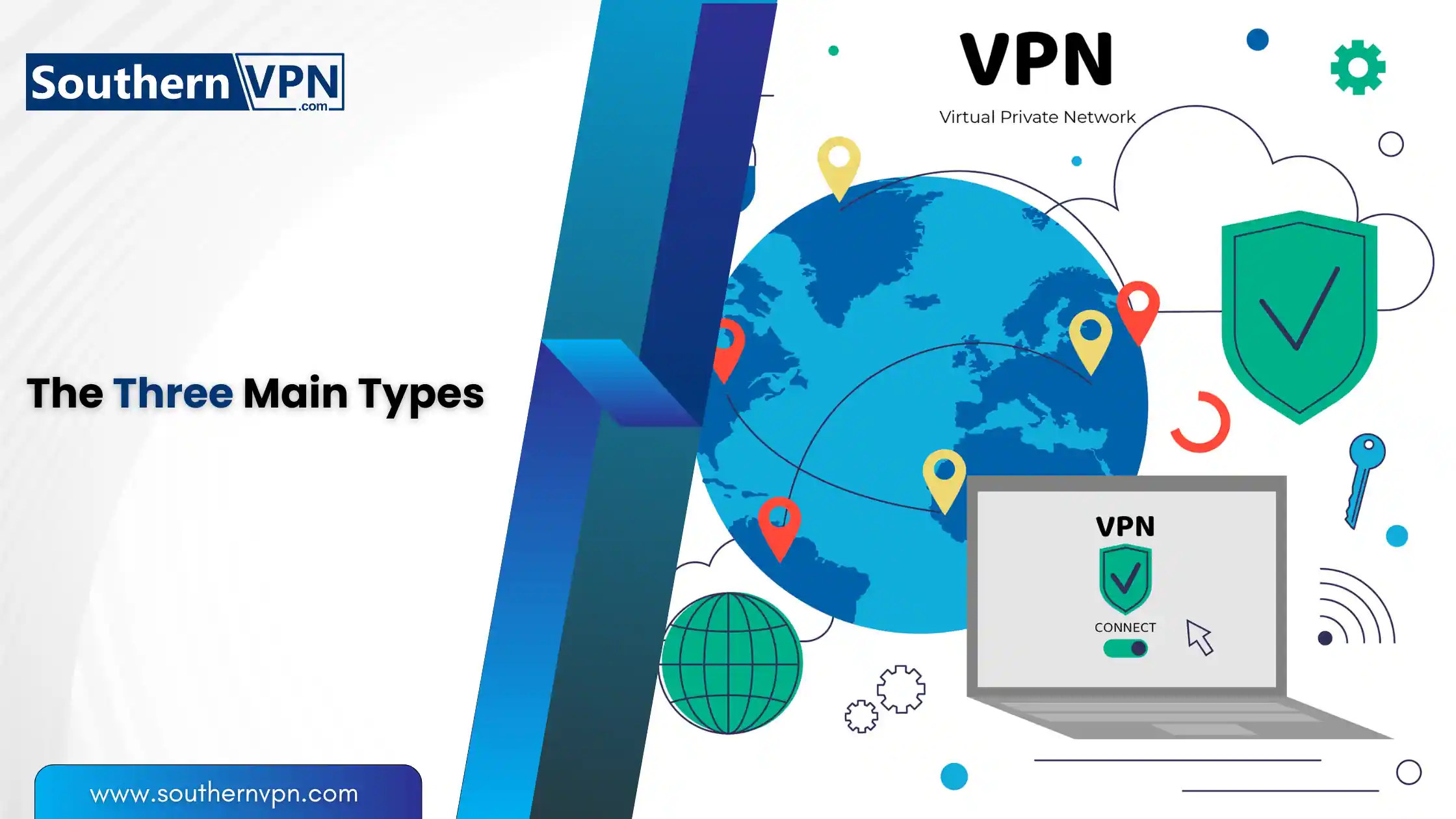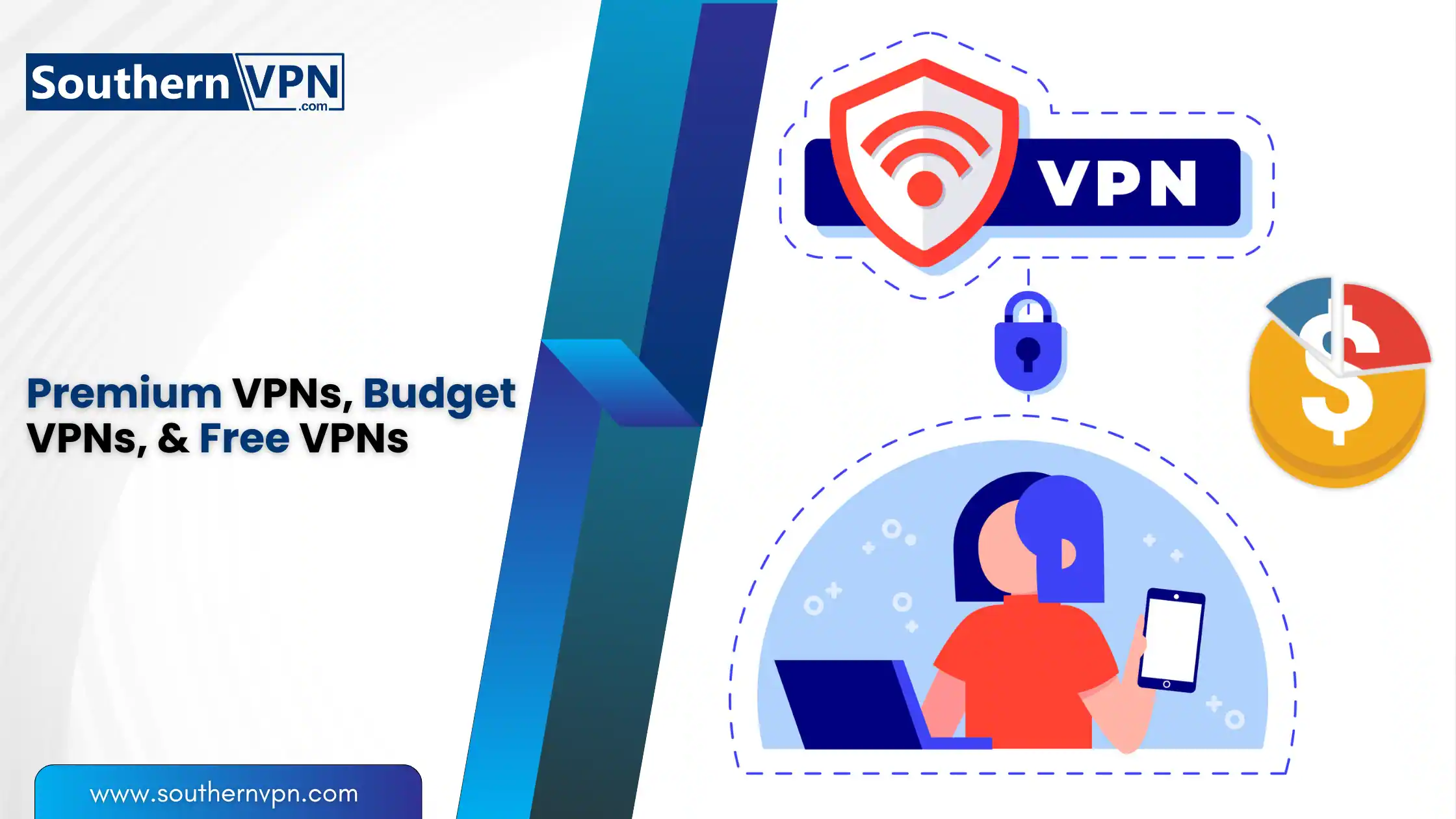Unmasking the Different Types of VPN: Online Privacy Superhero
What Exactly Is A VPN?
Now that we know what a VPN is, it is time to look at the types of VPNs that are available. VPN stands for Virtual Private Network which can be described as a secured connection that establishes a ‘channel’ between the end device and a server.
This tunnel decodes all your internet activities to ensure that nobody can monitor your activities on the internet. VPN can be helpful for getting around geographic restrictions, reaching the websites that are blocked in some countries, or just ensuring one would spy on your traffic.
Further, with a VPN it becomes easy for a user to maintain his privacy as the IP address is hidden and the connection appears to be from a different country.
The Many Faces of VPN: Finding Your Perfect Match


- Lightning-fast speeds to browse without lag
- Servers in 105+ countries around the globe
- Military-grade security to stay safe online
- Try it risk-free with its money-back guarantee
- Native apps for all major devices
Site-to-Site VPN: The Corporate Superhero Team
A site-to-site VPN can be defined as a connectivity solution most often used in corporations that allows the creation of a secure connection between two or more presences or branch offices over the Internet.
This sort of VPN creates a virtual link between two or more locations, and through this linkage, the employees can cooperate in real-time, in addition to sharing enclosed files, databases, and applications as though in the same infrastructure.
Remote Access VPN: Solo Superhero on the Go
A remote access VPN is implemented for those people who need to access the private network from a distant place. The kind of VPN is greatly utilized in situations where users require access to the organization’s resources while working from home or being within a different physical location.
A remote access VPN makes it possible for any user to access the company’s network while they are outside the office and the data transmitted is always secure and encrypted.
Mobile VPN: Superhero in Your Pocket
There are VPNs that are developed in a way that is compatible with mobile devices such as Smartphones, Blackberry as well as Tablet computers.
This kind of VPN grants the user the chance of accessing a certain private network or the internet while on the move and as such protects the data a certain person may wish to transmit through a particular WiFi or through mobile networks.
Personal VPN: Everyday Superhero
A personal VPN is similar to an organization VPN, but it is much smaller and it is aimed at consumer, who wishes to hide their identity online or get past geographical restrictions. These VPNs are normally easy to configure and use and as such are normally preferred by average internet users.
Cloud VPN
A cloud VPN on the other hand is an Internet services solution that enables the user’s connection to the Internet to be protected under a VPN. This type of VPN develops Virtual Private Network resources that are elastic and can be applied by various organizations with different requirements.
VPNs For Business Or Pleasure: Choose Your Superhero Identity

Business VPN
A business VPN is generally a VPN solution that is regarded for certain enterprise uses. These VPNs usually include various options like managing numerous connections, monitoring employees, etc., along with powerful protection measures for business information and assets.
Representational State Transfer (REST) VPN
A REST VPN is a VPN style that employs the RESTful style when connecting VPNs collectively and regulating VPN connections. If designed properly, it should be lightweight and easily scalable to suit the web and mobile cloud applications.
VPN Appliance
A VPN appliance is actually a physical device or a physical system that is used for providing VPN support. They are mainly adopted in the business networks to offer the staff secure remote access as well as site-to-site.
The Three Main Types of VPN

Remote Access VPN
As above seen, we have discussed the remote access VPN. This type of VPN is most used in systems where a worker is remote or has to access the intranet to corporate from a distant place as a contract or a traveling employee.
This implies that those who are subscribed to remote access VPNs are always in a position to use enterprise networks over the internet without jeopardizing the data.
Intranet-based Site-to-Site VPN
A site-to-site VPN that uses intranet technology is quite common within corporate circles where branch networks and businesses have to be connected over the internet.
This type of VPN links two or more points hence the employees obtain convenient access to materials, databases, and applications as if it was part of an exclusive LAN.
Extranet-based Site-to-Site VPN
Site-to-site VPN is an online access solution mechanism that employs extranet as an access technology in a manner that grants secure access to the organization’s partners, suppliers, or customers to selective resources.
To an extent, it links the company’s internal networks and allows third parties with access to the authenticated areas to therefore work and transfer information.
Other VPNs
Multi-protocol and Single-protocol VPNs
Another way to classify VPNs is according to the number of protocols that differ between them. Multiprotocol VPNs offer several protocols, including OpenVPN, IPsec, and L2tp, so that the users have alternatives in plenty. There is such a thing as single-protocol VPNs, and as the name may imply, the only protocol that these VPNs support is one.
No-Logging VPNs and the Rest
Some of the service providers of Virtual Private Networks do not store details of how the users or connections are used or even the time that the users spend online.
As it was highlighted earlier, people choose a VPN that will guarantee that their actions online cannot be linked back to them. Some VPNs may track some other information for different reasons including diagnosing or because the law requires them to.

Uninterrupted, high-speed browsing, zero logs so your online activity is always private.
Over 7000 people checked out NordVPN in the last month
Premium VPNs, Budget VPNs, And Free VPNs

VPs can also be classified by their methods of making money; this is in regard to the money-making models they use. Premium VPNs as the name implies tend to be more feature-rich, perform better, and are more secure for the user, but they are also more expensive.
A budget VPN offers all the necessary functions of a VPN but in a less sophisticated package than the premium counterparts while a free VPN has the same functions, but uses a very limited number of features or function may limit the usage to a specified amount of GB usage.
Virtual Private Network (VPN) Protocols
VPN protocols as the set of actions determining the functioning of the given data as well as its encryption between a VPN user and a server. Some degree of variation is observed with regard to the amount of protection offered, the speed of acquisition of some types of communication, as well as the extent of compatibility of the protocols with various types of devices. Let’s explore some of the most common VPN protocols:Let’s explore some of the most common VPN protocols:
Internet Protocol Security (IPsec)
IPsec can be defined as the services that allow data communication through a network with instructional procedures that reach a higher level of safety.
I peruse numerous authentication and encryption features herein, which has made it a common selection for site-to-site VPNs and remote access VPNs. IPSec is a group of protocols for ensuring secure communication over Internet Protocol frameworks. It offers two main modes of operation:
-
Transport Mode
In transport mode, only the message part of the IP packet is encrypted; the addresses are not encrypted. This mode is always employed to provide end-to-end communication between two hosts of a computer networking system.
-
Tunneling Mode
Performing the tunneling mode means that the whole IP packet undergoes encryption and additional encapsulation into a new IP packet. This mode is widely utilized in site-to-site and remote access VPNs, implying that the encrypted data is to pass through an intermediate hostile network.
OpenVPN
OpenVPN is rather safe, it is, in fact, open-source and is regarded as one of which is the most secure protocols. However, it offers a very high level of data protection by the application of better encryption algorithms, but at the same time it is not very rigid when it comes to the authentication available for the users, this is why many people and businessmen running their businesses use the Internet.
Layer 2 Tunneling Protocol (L2TP).
The other protocol is L2TP which is a rather complicated protocol that has been derived from PPTP also known as the point-to-point tunneling protocol and L2F which is Cisco’s layer 2 transfer facility. It provides an additional quite natural level of security as the information is encrypted twice and the probability of hacking or command interception is significantly lower.
Point-to-Point Tunneling Protocol (PPTP)
PPTP is a VPN protocol Other and previous protocols were created in mid-1995 by Microsoft. Concerning it, PPTP is widely known and can be set up in a matter of minutes but in the same turn, this type of connection is rather insecure and does not meet the requirements of the modern VPN.
Secure Socket Tunneling Protocol ( SSTP)
SSTP is a VPN protocol created specifically for use with Windows due to its creator Microsoft Corporation, and encryption in SSTP occurs through the utilization of SSL/TLS. The item is primarily bundled with MS-DOS operating systems and described as a tool – it indeed efficiently avoids firewalls and NAT equipment.
Transport Layer Security (TLS)
TLS is a protocol, which provides a kind of communication security and establishes an end-to-end secure communication for transmission of data over the Internet. It is commonly integrated with web browsers for encryption of the link between clients and servers and, to some extent, in VPNs.
Secure Shell (SSH)
SSH is a protocol that is used as an encrypted secure means to access another system through a potentially insecure network. SSH was initially created for remote access to Unix-like systems only, but as of late, the modern uses of SSH also include tunneling other protocols through the encrypted SSH connection thus creating a VPN-like connection.
WireGuard
It is quite a new VPN protocol and enjoys quite popularity because of its rather simple structure coupled with considerable flexibility and quite high levels of security.
This is due to the fact that it is relatively new to the other VPN protocols; due to its advanced nature, it implements modern encryption security,; this protocol has a smaller base code than the other protocols and this makes it easier for auditors to review it and make changes that are necessary.
IKEv2
IKEv2 or the Internet Key Exchange version 2 is often referred to as the newest-generation VPN protocol that has attracted users with their fast reconnection and the device’s capability to switch to another network within a blink of an eye.
It is mostly used with mobile VPN connections and can be synchronized with Windows OS, Mac OS, Android OS, and other similar ecosystems.
Frequently Asked Questions (FAQs)
What are the different types of VPN?
The different types of VPN include Site-to-Site VPN, Remote Access VPN, Mobile VPN, Personal VPN, and Cloud VPN. Each type serves a specific purpose and offers various features for online privacy and security.
What is a Site-to-Site VPN?
A Site-to-Site VPN is a connectivity solution used mainly by corporations to create secure connections between two or more locations. It allows employees to share resources and communicate securely as if they were on the same local network.
What is a Remote Access VPN?
A Remote Access VPN allows individuals to securely connect to a private network from a remote location. It is commonly used by employees working from home or other locations to access company resources securely.
What is a Mobile VPN?
A Mobile VPN is designed to provide secure connections for mobile devices such as smartphones and tablets. It protects data transmitted over public Wi-Fi or cellular networks, ensuring privacy and security on the go.
What is a Personal VPN?
A Personal VPN is aimed at individual users who want to enhance their online privacy and bypass geographical restrictions. It is easy to configure and use, providing secure internet access for personal activities.
What is a Cloud VPN?
A Cloud VPN is an internet service that allows users to connect to the internet through a secure, cloud-based VPN infrastructure. It offers scalable and flexible VPN resources for various organizational needs.
What are the benefits of using a VPN?
The benefits of using a VPN include enhanced privacy, improved security, access to geo-restricted content, protection on public Wi-Fi, prevention of ISP throttling, and a stable connection for online gaming.
Which protocol is the safest VPN?
It cannot be answered with a definite ‘yes’ or ‘no’ since it depends on various factors in order to be secured. However, OpenVPN, IKEv2, as well as the latest WireGuard protocol, are frequently referred to as some of the most secure VPN options at the moment.
Can I use multiple VPN protocols at once?
No, you cannot use multiple VPN protocols at the same time as each has its own specifications and functionalities. However, some VPN services allow users to switch between different protocols based on their needs.
Should I use a VPN if I am using HTTPS?
While HTTPS encrypts the data exchanged between your device and websites, it does not protect you from your internet service provider or other third parties monitoring your online activities. A VPN provides an additional layer of security by encrypting all your internet traffic.
Does using a VPN affect internet speed?
Yes, using a VPN can affect internet speed because it involves encrypting your traffic and routing it through the VPN provider’s servers. However, good VPN providers optimize their servers to minimize speed loss.
Is it safe to use a free VPN?
While free VPNs may seem attractive, they often come with limitations such as reduced speed, bandwidth restrictions, and potential security risks. Paid VPN services generally offer better performance, security, and privacy protection.
The VPN’s Verdict
As privacy and security issues continue to evolve in the online space, Virtual private networks or VPNs are very useful to anyone who uses the Internet. Remote VPNs allow for safe working from home while site-to-site VPNs connect branches or headquarters and personal VPN is meant to protect a user’s identity during internet use requirements vary.
Whether you are traveling around the world and need to bypass geographical restrictions, or just don’t want companies to know that you are shopping for their products, or even for a businessman who needs to protect his important data – it will be useful to get acquainted with the basic types of VPNs.
Thus, the VPN world also expands, and with fresh technological perspectives and new protocols coming up constantly, the demands of a modern world always remain taken care of. Keeping oneself abreast and in check in relation to these factors will remain critical to exercising relevant safety and privacy online.
Inform the participants that the Internet may be vast and unsafe. It’s risky, but we can go there if you have the right VPN, securely and proudly, sometimes even leaving an encrypted message for only a person who knows how it needs to be deciphered.






